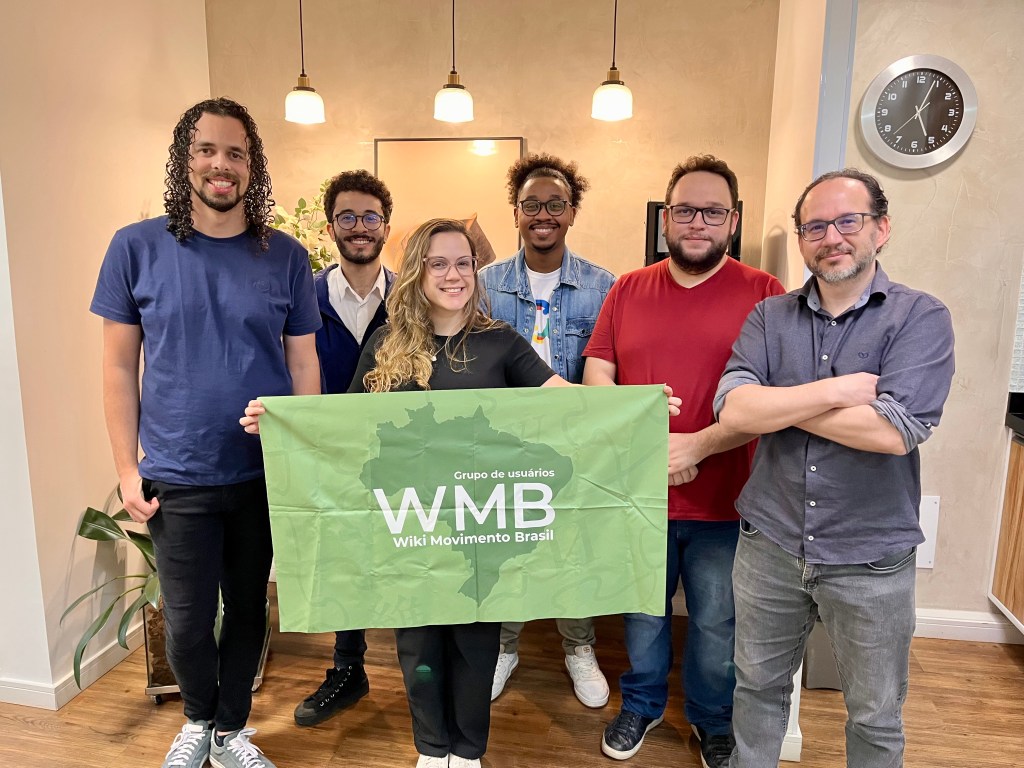
For the past several months, the Capacity Exchange team has been working hard to incorporate all the community feedback we received since our launch at Wikimania 2024, and is engaged in building a fresh version of the software. During this period, we changed the project management, hired two new members into the technical development team, refactored our Technical Plan, increased the Advisory Committee members, and supplemented the team with five Community Outreach Facilitators.
The main purpose of this diff post is to celebrate the growth of Capacity Exchange direct support and to communicate to the community all the work we have been doing.
Increase in Community Support
In the past months, we have been working to connect with diverse initiatives across the Movement to present the Capacity Exchange project, invite wikimedians to test the software, gather their feedback and increase support among our peers. We have exchanged with more than 20 initiatives and gathered inspiring and constructive feedback.
In order to improve our capacity to connect with peers, we onboarded five Community Outreach Facilitators to help us engage users to get to know, understand, and test the software among their own regions. We are happy to communicate that Joris Darlington Quarshie, from Ghana; Nivas Ramisetty, from India; Tochi Precious, from Nigeria; Vic Sfriso, from Argentina; and Vjollca Merdani, from Albania are now immersed in CapX’s world and will be pleased to help anyone interested in knowing more about it.
We also count on three additional initiatives participating with one of their members at our Advisory Committee. The committee plays a significant role in providing guidance to the project management and aiding the team in the development of a software that is beneficial to the global Wikimedia community.
As a software that aims to connect and match individuals, it can only function effectively if people who are interested in exchanging skills and abilities create their profiles and utilize the tool. All community help, support, and feedback are welcome to give life to this powerful sociotechnical solution for capacity-building in the Wikimedia Movement. So we call any interested party to join the Capacity Exchange network and help spread the word about the platform.
The Development Team is in full steam!

In September 2024, we began the process of slowly transitioning Capacity Exchange’s management from Andi Inácio to Amanda Jurno. For two months they co-managed the project, before Andi stepped-out to pursue a PhD scholarship abroad. Both are voluntary members of the User Group Wiki Movimento Brasil, which made the process easier and with minimal loss.
In October 2024, we concluded the process of selecting and hiring two new members of the CapX Technical Development team: one front-end software developer, Victor Góis, and one designer UX/UI, Allan Rodrigues. They are now working with Alberto Leôncio, CapX’s backend software developer, with the guidance of Éder Porto, WMB’s Products and Technology manager.
Through the months of October and November 2024, the team refactored the Technical Plan, which follows up its second and first versions, and aims to guide the second cycle of the software development.
Following Wiki Movimento Brasil’s practice of regional diversity, the CapX team is also spread across our continental-sized country. On December 5th, 2024, the technical development team and management of Capacity Exchange met in person, in São Paulo, to work together on the project. Throughout one entire day, we discussed the work that has been done in the past few months, determined priorities to guide the work, and planned the next steps.
We have refactored our technical timeline to include new feedback and fresh ideas brought to us by the community, reviewed our planning, and organized the activities to be carried out in 2025. Currently, we are working hard to launch a fresh new version of the software at the beginning of the year.
The possibility of working together at the same time and geographical space allowed us to deepen our new members’ onboarding into the Wikimedia Movement. Before this meeting, we had hired two new technical professionals. But after discussing the values, philosophy and principles of the Movement, we ended up bringing two new wikimedians to the community.
Being physically present also allowed us to discuss openly about things we would have done differently in the project. Over the past two years, we have gained significant knowledge about the software development process, especially one focused on the Wikimedia Movement. Today, we can look at our initial plans in a new way and consider different ways to reach our goals. We intend to share all of these insights and learnings with the community as soon as we complete the second phase of Capacity Exchange in June 2025.
About the Project
The Capacity Exchange (CapX) is a platform designed by and for the Wikimedia Movement.
It is a centrally-designed tool that allows for decentralized capacity building, from the recognition that the knowledge and skills needed for community capacity building are already within our reach, among us. The project directly responds to Recommendation 6 of the Movement Strategy 2030 by providing a service to facilitate matching/connecting people across the Movement for teaching and learning skills, addressing the largest missing item in the movement’s toolbox: peer support.
This second iteration of Capacity Exchange is coordinated and administered by Wiki Movimento Brasil, with the guidance of an international Advisory Committee and is planned to last until June 2025.
You can get more information about CapX’s team and project at our meta page, or by emailing us at capx@wmnobrasil.org.

File:CapX-LandingPage.gif, CC-BY-SA 4.0, Wikimedia Commons.

Can you help us translate this article?
In order for this article to reach as many people as possible we would like your help. Can you translate this article to get the message out?
Start translation